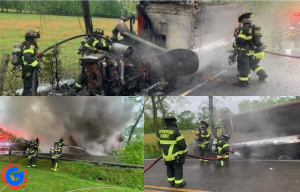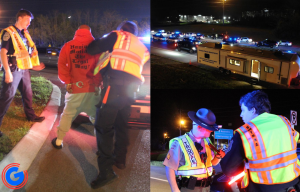 Ron Yoshimoto, the statewide special education literacy resource teacher trainer for Hawaii, conducted a 40-hour training program at MTSU to train teachers how to help youngsters having problems with reading.
Ron Yoshimoto, the statewide special education literacy resource teacher trainer for Hawaii, conducted a 40-hour training program at MTSU to train teachers how to help youngsters having problems with reading.
As he floated between the rows of educators inside MTSU’s College of Education Building, Yoshimoto drew lots of laughter but also equal amounts of attention from a group of Tennessee teachers eager to help their struggling students with reading.
He conducted a 40-hour training program that ran July 14-18 and was hosted by the Tennessee Center for the Study and Treatment of Dyslexia at MTSU. Yoshimoto is considered a master trainer of the Orton-Gillingham instructional approach to reading, which emphasizes phonics-based, multi-sensory, hands-on learning.
The training, attended by about 35 educators from throughout the state, focused on how to not only help students who may be suffering from dyslexia, but any students struggling with reading, spelling, writing and reading comprehension. Using a variety of training tools ranging from a bingo-themed game to index cards, Yoshimoto kept his class engaged.
“Sometimes (student) reading comprehension is low, but their listening comprehension is high,” Yoshimoto told the group during a Thursday discussion about how to properly conduct one-on-one reading instruction.
“I don’t want you to overly focus on speed,” he said later as the training continued. “There’s more than speed to think about.”
Workshop participant Cindy Nickerson, a third grade teacher at Lascassas Elementary School in Rutherford County, is excited about using the teaching methods shared by Yoshimoto with her third-graders, who are in a critical transition where “they are switching from learning to read to reading to learn.”
“I wanted something that would help me with those students who are struggling with reading, and this is a very systematic approach that I think will help keep students on track and help those who are struggling catch back up,” she said. “This is one more tool to add to my tool belt to help me really address the differentiating needs of my students.”
Lenise Moore feels the workshop will greatly assist in her role as an instructional coach for teachers at Southside School, a Pre-K through eighth grade school in Lebanon, Tennessee.
“This is one of one of the best workshops I’ve attended for at-risk students,” she said, adding that workshop participants are learning how to effectively help students in one-on-one and small group settings.
“We still have middle schoolers who are struggling to read, so this will benefit them as well. We have several English language learners that will benefit, and we have struggling readers at all grade levels that this will help.”
Dr. Jim Herman, director of the Tennessee Center for the Study and Treatment of Dyslexia, said Yoshimoto, who has taught thousands of educators across the U.S., Canada and Singapore, has developed his own comprehensive program within the Orton-Gillingham framework.
“Teachers should have this in their backgrounds to teach,” Herman said. “It’s great for general education, but it’s great for special education also. A special education teacher could really use this to upgrade their reading instruction.”
Herman said there was a waiting list of teachers seeking Yoshimoto’s training and plans are to bring him back to campus next year for a similar session.
“I believe if all teachers had this reading training, our reading scores would go up. It’s that good.”
For more information about the Tennessee Center for the Study and Treatment of Dyslexia and its training programs, visit www.mtsu.edu/dyslexia/index.php, call 615-494-8880 or email dyslexia@mtsu.edu.











